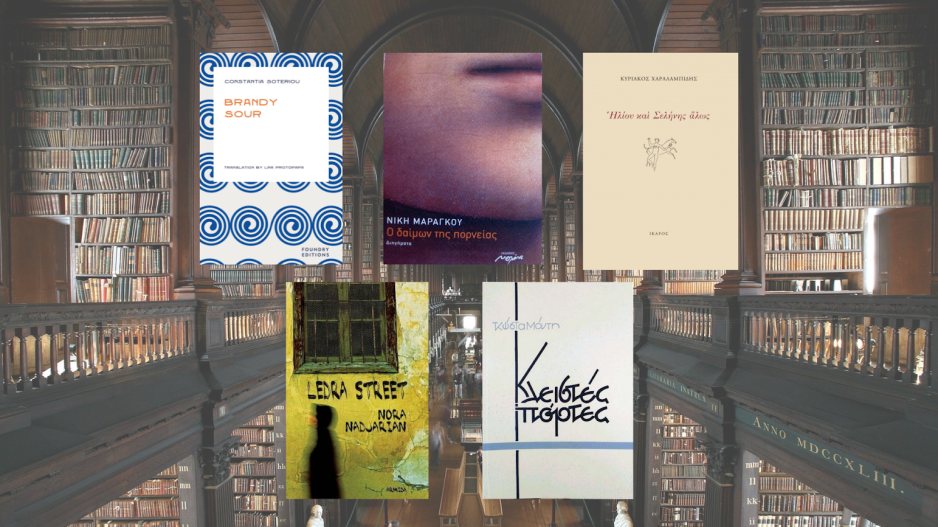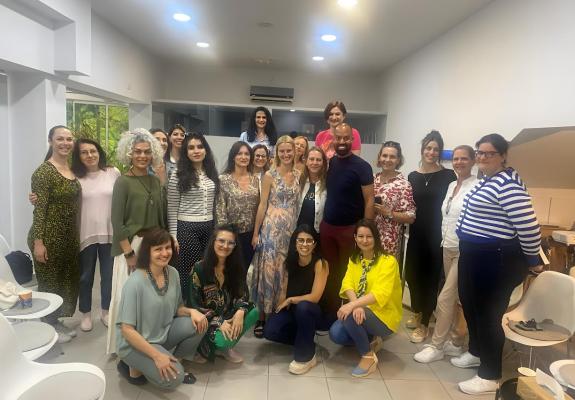Cypriot Literature on the Global Stage
Poignant Literary Works Resonating With the Whole World
The multiethnic nature of the island has affected multiple aspects of its history and heritage, including its literature. Thanks to these rich, diverse roots, Cypriot writers and poets have been able to create works that have been resonating with people from all over the world. Their works are making waves on the global stage, as they pose poignant questions and reflections on complex subjects such as identity, conflict, and reconciliation. Many of their works have been met with global recognition and have been translated into multiple languages.
Constantia Soteriou is one of the most renowned contemporary Cypriot authors. Her work deals with Cyprus's tumultuous past, particularly the intercommunal violence that shaped its modern history. Her short story, “Death Customs”, which won the 2019 Commonwealth Short Story Prize, is a deep exploration of the toll war has on the human psyche, approached primarily from the perspective of women left to mourn their dead or missing loved ones. Her literary work has had a profound impact on readers, as is evident by the fact that it became the first translated story to be awarded the Commonwealth Prize, marking a notable achievement for Cypriot literature. Her writing bridges the gap between personal, internal emotions and universal feelings, reflecting on the aftermath of conflict and earning her a place among the most influential Cypriot voices.
Armenian-Cypriot poet and short story writer, Nora Nadjarian, is one of the most renowned Cypriot writers of the modern era. Her work grapples with deep, personal themes including, but not limited to, a sense of identity, the effects of displacement, and the need to belong, inspired both by her personal history and events that have left a significant mark on the island’s contemporary history. Through her stories, Nadjarian attempts to give a different perspective on the complexities of migration and exile, shedding light on the often-overlooked impact of these experiences. Her work has been translated into a multitude of languages, including German, Italian, and French, while her participation in international literary festivals has brought Cypriot writing talent to the forefront.
Costas Montis was born in Famagusta and is known for his poems, novels, and plays that explore the intricacies of Cypriot life, culture, and history, especially the effects of the political conflict between Greek and Turkish Cypriots. His work often reflects his deep connection to Cyprus, and the country’s division and how it has impacted the island’s people.
His most famous work is "Closed Doors", published in 1964. The titular "closed doors" serve as a metaphor for the human psyche and the political situation in Cyprus. In this modernist novel, Montis paints a clear picture of the alienation and psychological suffering that people experienced in the face of these trying societal and political times. He has also written an impressive number of poems including the "Moments" collection, delving into deep emotions and existential themes.
One of the most prominent contemporary Greek-Cypriot poets. Charalambides was born in Achna and his poetry analyzes the deeply cultural and historical identity that defines Cyprus. He draws inspiration from the island's imaginative mythology, rich history, as well as its religious roots and traditions, creating an intricate and layered form of expression in the process.
His collection, "The Agonies of Heroism", deals with themes of independence, liberty and Cypriot history, and is considered by many, his magnum opus. Charalambides has also written extensively about the Turkish invasion of Cyprus in 1974, a turning point for the island and numerous Cypriot writers. His works often convey feelings associated with shared grief and personal tragedy, while also searching for meaning and comfort.
Niki Marangou was an accomplished novelist, poet, and painter whose part in modern Cypriot culture is undeniable. She was born in Limassol, and studied sociology in Germany before returning to Cyprus to work in theater and literature. Her work is known for its vibrant and unique storytelling, delving into themes of memory and history, reflecting on her experiences growing up in Cyprus.
Marangou's most renowned work is "Axiothea", a novel about a woman struggling to deal with her personal identity in the midst of political upheaval in Cyprus. Her poetry is defined by its lyrical quality and the interplay between personal experience and collective history. In 2006, Marangou was awarded the prestigious Cavafy Prize for Poetry.






